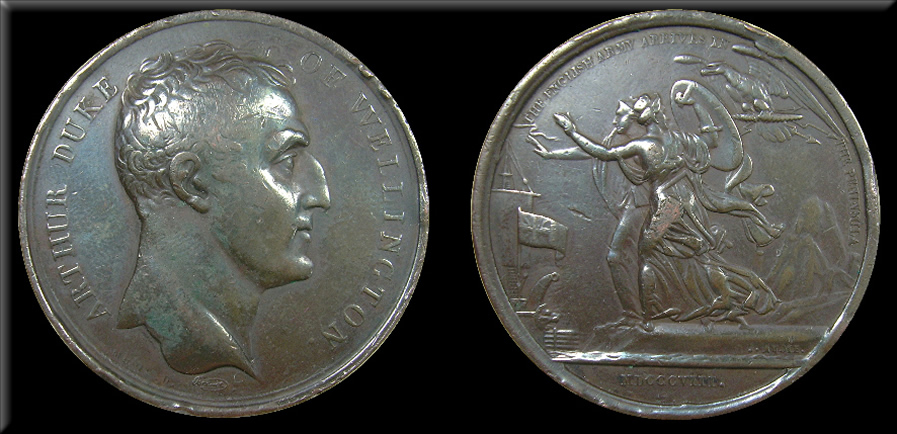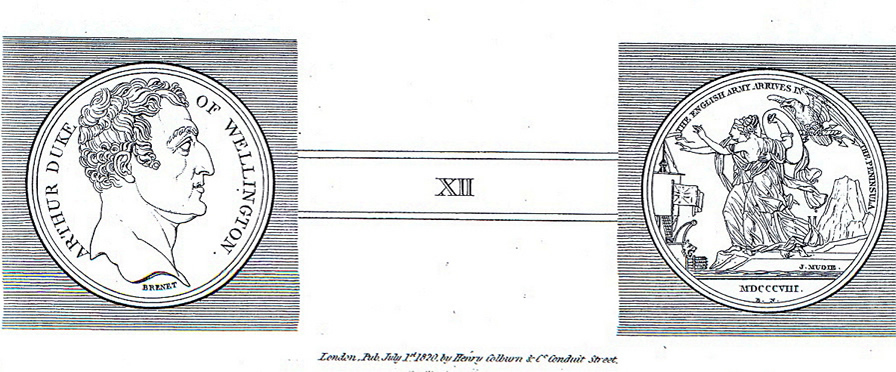Arrival of the English army in the Peninsular - 1808

Side 1: ARTHUR DUKE OF WELLINGTON. |
Side 2: THE ENGLISH ARMY ARRIVES IN THE PENINSULA.. In ex.: MDCCCVIII |
Bramsen 742, British Historical Medals 635, Julius 1918 - Mudie Series 12 (1820) |
Mm. 41 |
Engravers: Brenet & J. Mudie |
|
Bramsen - 742 (Brenet et J. Mudie) Wellington débarque en Portugal. (Description) |
|
ARTHUR DUKE OF WELLINGTON. Tête, à droite. |
Rev: THE ENGLISH ARMY ARRIVES IN THE PENINSULA. Deux femmes, représentant l'Espagne et le Portugal, fuient l'aigle français et implorent l'assistance de la flotte anglaise, dont on voit un bâtiment au pavillon britannique. Dans le fond, une montagne et les colonnes d'Hercule.
Exergue: MDCCCVIII
|
Médaille, 40 mm. - T. N. 26, 10. |
|
British Historical Medals - 635 - ARRIVAL OF THE ENGLISH ARMY IN THE PENINSULAR |
||||||||||
AR, AE 41 by N. G. A. Brenet & J. Mudie. |
||||||||||
Obv. Bare head of the Duke of Wellington, right. ARTHUR DUKE OF WELLINGTON.
|
Rev. Allegorical figures of Spain and Portugal being attacked by the French eagle, imploring aid from Britain. THE ENGLISH ARMY ARRIVES IN THE PENINSULAR.
In exergue: MDCCCVIII. |
|||||||||
AR R; AE N.
M . 12. AM; HC. |
||||||||||
|
||||||||||
Mudie Series n. XII - Arrival of the English army in the Peninsula - Description of the medal |
 |
...OBVERSE. - Head of the Duke, in imitation of the antique; inscription "ARTHUR DUKE OF WELLINGTON."
...REVERSE. - An allegorical display of the arrival of the British army in the Peninsula, to assist it against the French, whose military power and success in that country are pourtrayed by the eagle with the fulmen on thunder-bolt pursuing the armed force of Spain and Portugal, who are personated by two females imploring British aid. Round the face of the Medal is inscribed, "THE ENGLISH ARMY ARRIVES IN THE PENINSULA." On the exergue, or small division of the Medal, parted off from the subject, is the date of the arrival. In the back ground are the mountains peculiar to the country, which are also represented by the pillars of Hercules, the ancient emblems of the Peninsula. |